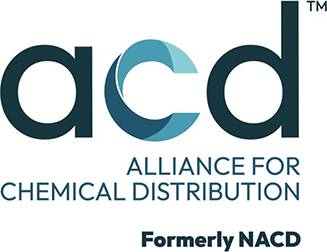Intermediate Bulk Containers (IBCs) are an ideal packaging solution for storing and transporting various materials, but choosing between metal and high-density polyethylene (HDPE) IBCs can be challenging. Each type has unique features, benefits, and drawbacks, making them suitable for different applications. Read on and learn whether metal or poly IBCs are best for you.
Durability and Longevity
Metal IBCs are known for their durability and longevity and are particularly suitable for heavy or high-viscosity materials that require robust containment. Made typically of stainless steel or carbon steel, they can withstand harsh environments and are resistant to damage from impact or punctures. For example, our stainless-steel metal IBCs are built to last for 25 years or longer, and can be reused for many years, making them a cost-effective choice in the long run.
Chemical Compatibility
Poly IBCs are made from high-density polyethylene and often provide excellent chemical resistance, especially for storing and transporting various corrosive substances and food-grade liquids. Not all materials are compatible with HDPE tanks, so it’s important to check the chemical compatibility of the specific substances being stored.
Weight and Portability
One of the significant advantages of high-density poly tanks is their lightweight nature compared to metal IBCs, which makes them considerably easier to handle and maneuver. Both metal and poly IBCs are stackable, making them a reliable container option for intermodal transport.
Cost Considerations
When it comes to cost, poly IBCs are generally less expensive than metal IBCs due to their shorter useful life span. For example, our poly tanks are reusable up to 5 years with proper maintenance and inspections, compared to 25+ years for stainless-steel metal IBCs. While this lower cost makes poly IBCs an attractive packaging option, it’s important to consider long-term business objectives as well as the cost-savings that come into play with durable, long-lasting metal IBCs.
You can also partner with an intermediate bulk container supplier to rent poly IBCs instead of purchasing them—minimizing capital expenditure and maximizing supply chain circularity.
Now that you know more about metal and poly IBCs and which is best for you, you can make an informed decision based on your specific storage and transportation needs. Whether you opt for the durability and longevity of metal IBCs or the chemical compatibility and lightweight nature of poly IBCs, each type offers unique benefits. Consider factors like the type of material being stored, the environment of use, cost considerations, and handling requirements to choose the right containers for your business.


